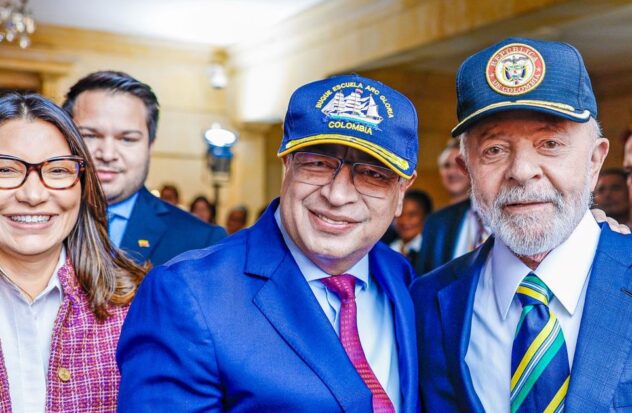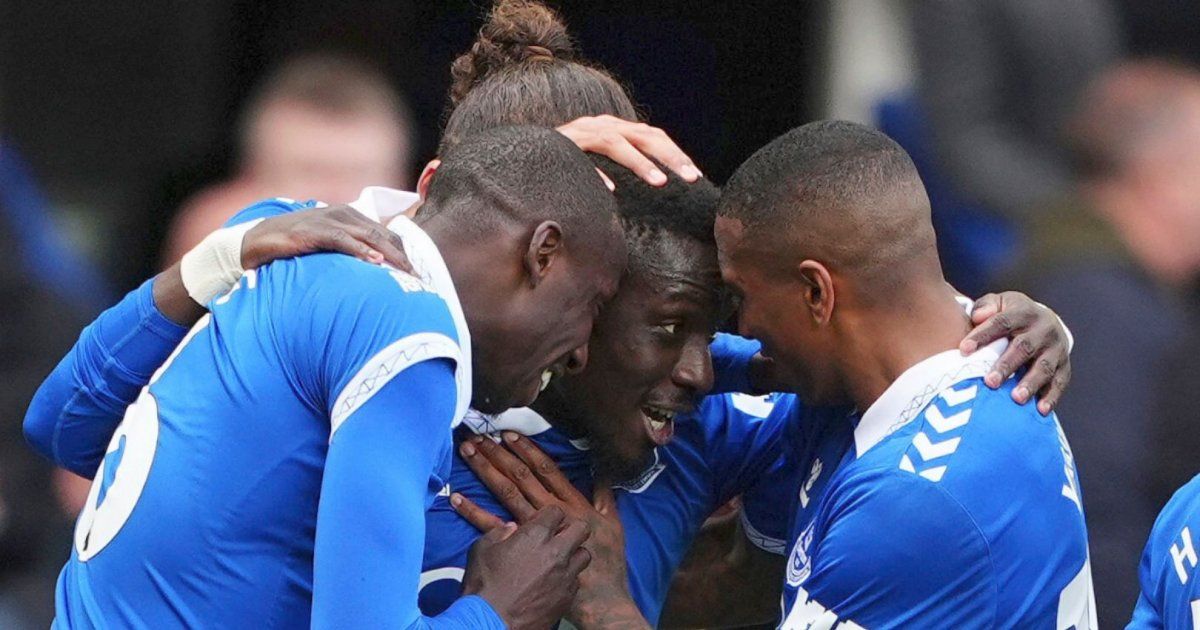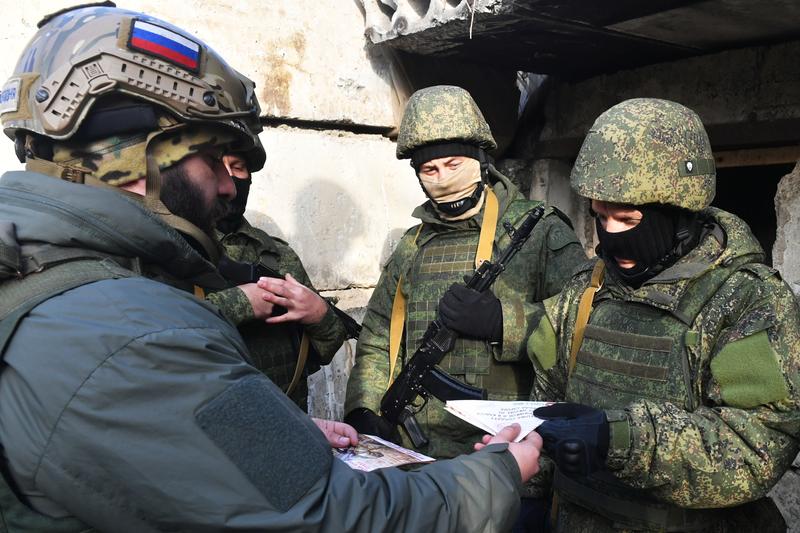Once again, Russia sends a group of warships to Caribbean waters as a force projection exercise in the Western Hemisphere and, as is now routine, Havana will be the receiving port.
The frigate, which was already in Cuba On 24JUN19, it returns to the Cuban port accompanied this time by the nuclear-powered submarine Kazan with the capacity to launch missiles with nuclear warheads. The flotilla is completed by two service ships, the tanker Pashin and the tugboat Nikolai Chiker, the latter a usual companion of the frigate. The arrival of the flotilla to the Cuban port is scheduled for 12JUN24.
*****
The unitary candidate of the opposition Venezuelan, Edmundo González Urrutia, Gustavo’s efforts Petro for a political agreement on the elections and a “transition” in Venezuela.
In diplomatic media in Caracas, since the end of April, it became known about the efforts that the Colombian ambassador to the Chavista dictatorship, Milton Rengifo, was carrying out to find out the opinion of various political actors on the proposal that Petro enunciated on April 17, 2024 for Venezuela. That day, on the stage of a press conference in Bogotá in the company of Lula da Silva, Petro spoke about a “plebiscite” in Venezuela to approve a pact between the Chavista regime and the opposition. Given that Petro had been in Caracas a week before, various media outlets assumed that there really was a specific proposal from Petro which would be supported by Lula. After Petro’s visit to Caracas on 09APR24, his ambassador Rengifo, according to sources in Bogotá, would have started meetings with political spokespersons in Caracas, acting on direct instructions from his president, probably ignoring who at that time was acting as foreign minister in charge Luis Gilberto Murillo.
*****
Rengifo held personal meetings with his counterparts from Brazil and Mexico in Caracas and with several presidential candidates and political spokespersons, expressly ignoring González Urrutia and María Corina Machado. For his part, Foreign Minister Murillo expressed on 08MAY24 at the annual meeting of the “Council of the Americas” in Washington that his government was in contact with Maduro and opponents “and that it will guarantee that we have a smooth transition after the elections” in Venezuela. Rengifo’s efforts and Murillo’s opinions unleashed the wrath of co-ruler Diosdado Cabello, while the Venezuelan opposition did not know the details of Petro’s proposal. The candidate González Urrutia would have directly consulted the Colombian Foreign Ministry in search of Petro’s alleged proposal without receiving answers. He was informed that these were efforts by Ambassador Rengifo who in turn evaded responsibility and promised the opposition candidate that he would consult Bogotá.
On 27MAY24, Foreign Minister Murillo, already appointed to the position, denied the existence of a draft agreement text to be presented to Maduro and González Urrutia. And on 01JUN24, the opposition candidate, in statements to the Venezuelan journalist Pedro Pablo Peñaloza, stated that the Petro proposal had been “something that was not well oiled and negotiated” or simply a “bluff.”
Petro had said on 17APR24 that his proposal was to hold a “plebiscite in the elections in Venezuela that guarantees a democratic pact that guarantees for anyone who loses, certainty and security over their life, over their rights, over the political guarantees that any human being must have in their respective country.” Petro’s “proposal” was smoke.
*****
On 30MAY24, the Colombian Foreign Minister informed the media that his government would not send a technical mission of observers to the votes called by Maduro. The civil organization “Electoral Observation Mission” had let the Colombian Foreign Ministry know of its impossibility to prepare an electoral observation mission in such a short time.
By the way. The Supreme Electoral Court of Brazil would have chosen not to organize an electoral observation mission to be sent to the votes in Venezuela. In Brazil, electoral missions are not organized by the Executive but by the judicial body in charge of electoral processes.
*****
An electoral observation mission is a technical delegation that executes protocols and techniques on the ground to testify about compliance with transparency parameters in an electoral process. An EOM evaluates the electoral process and not the day of voting. An EOM differs from the guest delegations that usually attend elections in different countries. In the case of the voting in Venezuela, after the Chavismo electoral body on 28MAY24 withdrew the invitation to the European Union, the activation of any true international technical electoral observation mission is not planned. The regime is preparing a massive presence of foreign friends and some international organizations that will pose for photographs on 28JUL24.
*****
On 05JUN24, various media outlets reported a telephone conversation between Lula da Silva and Nicolás Maduro and claimed that the Brazilian had pressured the Venezuelan dictator to accept international observers for the votes that he called for 28JUL24. Officially, the Planalto Palace announced that far from distancing itself from Chavismo, the Brazilian president is ready to renegotiate the debt that the Venezuelan dictatorship maintains with Brazil. In the telephone conversation Lula would have mentioned his support for the so-called “Barbados agreement” signed between Maduro and the Opposition and Lula also expressed to Maduro “the importance of having a large presence of international observers.” In no way was this pressure from Lula for Maduro to accept a true electoral observation mission. The two partners talked about celebrating a bilateral agreement on investments, protecting the Yanomami ethnic group (persecuted by mining exploitation promoted by the Chavista government) and renegotiating the debt.
*****
As a small part of the extensive external debt created by the Chavista dictatorship, Venezuela maintains a debt with the Brazilian state that as of 31MAR24 stood at US$811 million. This is money contributed during the previous Lula government to the Brazilian companies Construtora Camargo Corrêa, Construtora Andrade Gutierrez and the famous Construtora Norberto Odebrecht now renamed Novonor. The debts acquired, some by the state oil company PDVSA and others directly by the Venezuelan treasury , totaled more than a billion dollars and had the purpose of carrying out works by these companies. The Brazilian counterpart was the Banco Nacional de Desenvolvimento Econômico e Social and these loans were part of a complex scheme through which Lula simultaneously benefited friendly governments and companies that financed his party. The governments of Cuba, Mozambique and Venezuela are delinquent in paying their debts.
*****
The commander of the Brazilian Army, General Tomás Paiva, proposes increasing military cooperation with China. On the eve of a trip to China, the Brazilian military chief, in long statements to the Estadão de São Paulo on 08JUN24, Paiva described Brazil’s “alliance” with China as “strategic” and said that there is a plan to increase the exchange of students between schools militaries of both countries. From “military doctrine” to cyber defense, missiles, electrical military equipment, they are topics of interest for the Brazilian military.
Army General Tomás Miguel Miné Ribeiro Paiva was appointed commander of the Army on 21JAN23 by Lula da Silva.




